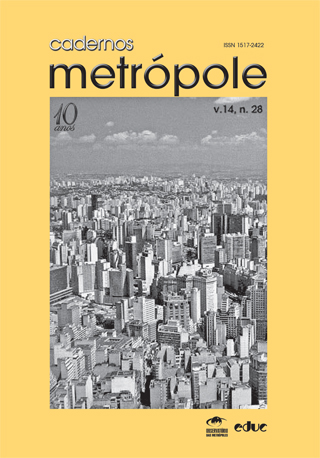Ditadura civil-militar e favelas: estigma e restrições ao debate sobre a cidade (1969-1973)
Palavras-chave:
favelas, favelado, remoção de favelas, CHISAM, planejamento urbanoResumo
O presente artigo busca contribuir para a compreensão das condições políticas e econômicas que possibilitaram a execução da política de remoção de favelas promovida pela Ditadura Civil-Militar instaurada em 1964, no então Estado da Guanabara, bem como o entendimento de como este plano seguia pressupostos estruturados na conjuntura democrática anterior, a partir da permanência do estigma de favelado como alguém marginal, ilegal e sem ‘direito à cidade’. Dessa forma, o artigo destaca como idéias e teses sobre o favelado eram expostas pelas autoridades sem que pudessem ser questionadas pelos diversos atores, com a remoção de favelas se consolidando como praticamente a única política de Estado para as favelas cariocas no período 1968-1973.Métricas
Downloads
Como Citar
Edição
Seção
Licença
A revista não tem condições de pagar direitos autorais nem de distribuir separatas.
O Instrumento Particular de Autorização e Cessão de Direitos Autorais, datado e assinado pelo(s) autor(es), deve ser transferido no passo 4 da submissão (Transferência de Documentos Suplementares). Em caso de dúvida consulte o Manual de Submissão pelo Autor.
O conteúdo do texto é de responsabilidade do(s) autor(es).


